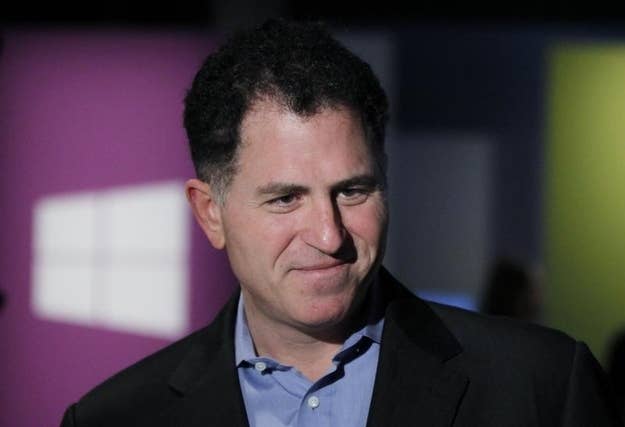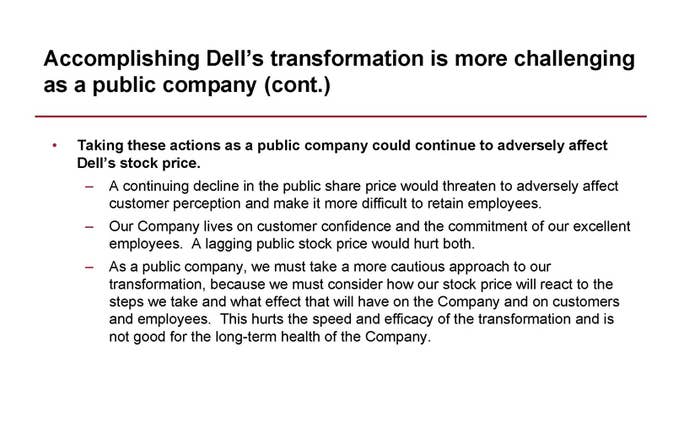
With the vote on whether to allow for a buyout that would take aging PC manufacturer Dell private coming closer and closer, CEO and founder Michael Dell is stepping up his game to convince investors to authorize the deal.
Earlier today the company filed a presentation Dell issued to investors over the merits of allowing the company to be taken private, and it actually does a pretty good job of spelling out the risks of running a public company in the middle of a transition.
Dell is basically being hit in a couple different areas: first, the PC market, which has been Dell's bread and butter, is getting slaughtered by the iPad among other things; second, it's facing increasing competition in enterprise services from Web-oriented providers.
That means Dell has had to make some serious changes, primarily in orienting itself as a services company much like some of the most successful enterprise technology companies out there. That's a hard transition to make as a public company, and here's why:

His explanation above is actually a good rundown for why companies, in general, don't like making transitions in public. Facebook's stock price has been a train wreck since its IPO because the company had to navigate a complicated shift from a desktop-oriented service to a mobile-oriented service. It's been able to do that, but Facebook is also a very young and agile company compared with Dell.
Being public also makes companies potential targets of activist shareholders. In Dell's case, it's Carl Icahn, who is arguing that Dell instead return value to shareholders in the form of recapitalization.
Neither situation is very fun, and in most cases, better navigated as a private company outside of the constant scrutiny of the public stock market.
